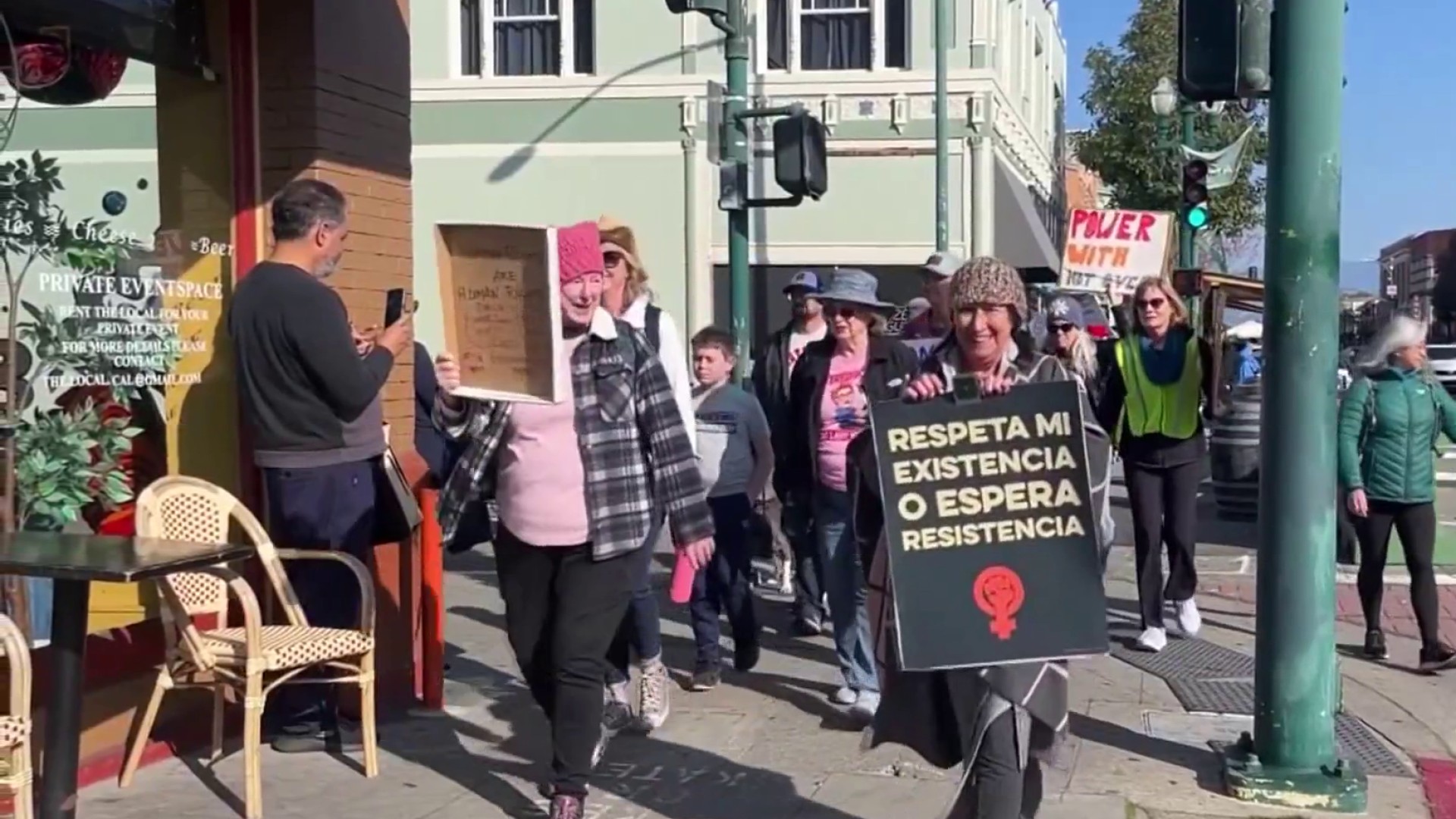Kaiser Permanente employees launched a three-day strike Wednesday morning at facilities across the country.
Roughly 75,000 employees were expected to hit the picket lines across the U.S. for the next three days. In Northern California, more than 37,000 workers were slated to walk off the job, upset over wages and a lack of staffing.
The union claims its poll found two-thirds of workers have seen care delayed or denied due to short staffing. Kaiser has disputed those results.
"We are overwhelmed," medical assistant Damaris Reyes said. "I don’t think that we can go any longer with what Kaiser is offering us."
The jobs affected by the strike include ER and X-ray technicians, ultrasound sonographers, and customer service workers, among many others.
Doctors and registered nurses are not involved in the strike, and hospitals will remain open.
Local
"Our vacations do not get approved, only two staff are allowed to be off, we have about 16-17 [medical assistants]," medical assistant Elizabeth Martinez said. "We have three brand new doctors and no staff for them."
Kaiser says it continues to work toward an agreement but has plans in place to ensure high-quality care will continue if workers strike.
Get a weekly recap of the latest San Francisco Bay Area housing news. Sign up for NBC Bay Area’s Housing Deconstructed newsletter.
The provider also claims to have the highest total compensation in every market where it operates.
"The issue at the table is not staffing, it is wages," said Michelle Gaskill-Hames, Kaiser Permanente Regional President in Southern California and Hawaii. "That’s the reason that hopefully we will resolve in the next 24 hours, but that’s the reason at the table."
Kaiser said it may have to reschedule non-urgent appointments and procedures and noted that wait times could increase during a strike.
"It has really been tough across the country in terms of staffing shortages associated with the great retirement, the great burnout," Gaskill-Hames said. "But the fact of the matter is KP has been doing better than others in terms of retaining our employees."
Kaiser provided the following statement on Wednesday afternoon:
After 6 months of bargaining with the Coalition of Kaiser Permanente Unions, including a marathon effort that went through last night and into today, our bargaining sessions unfortunately ended without a settlement, and the Coalition strikes began.
While we have not reached a contract settlement, we have been able to reach a number of tentative agreements in bargaining, and our offers to date address the unions’ priorities, including:
- Across-the-board wage increases in all markets over the next four years.
- Updating the Performance Sharing Plan to include a minimum payout opportunity and potential for up to a $3,750 payout.
- Offering minimum wages of $23/hour in California and $21/hour in markets outside of California.
- Continuing and enhancing our existing excellent health benefits and retirement income plans.
- Renewing our strong tuition assistance and training programs, and increasing funding of the education trusts.
We remain committed to reaching a new agreement that continues to provide our employees with market-leading wages, excellent benefits, generous retirement income plans, and valuable professional development opportunities.
Together, we have faced the toughest challenges over the past three years. Kaiser Permanente, our industry, and our employees are now operating in a new cultural, labor, and post-pandemic environment that we are all working hard to understand. We are committed to finding workable solutions for this new environment that meet our responsibility to balance taking care of our employees and being affordable to our members.
We will coordinate with Coalition leaders to reconvene bargaining as soon as possible. We will work hard to reach an agreement so that together, we can all return to delivering on the mission of Kaiser Permanente for the benefit of our members, patients, employees, physicians, customers, and communities.
Meeting our shared staffing goal
On the same day that the Coalition strikes began, we’re pleased to confirm that we’ve met our goal of hiring 10,000 new Coalition-represented employees by year-end – and it is only October 4th. We’re not done yet. We are committed to addressing every area of staffing that is still challenging.
As a reminder: In April we agreed with the Coalition to a joint goal of hiring 10,000 people by the end of this year into jobs the Coalition cares about. We agreed this would be a great success if we could hire that many people into Coalition roles by the end of this year. We hit the goal three months early.
In total over the past two years, Kaiser Permanente has hired more than 50,000 people to join our teams.
Meeting our members’ needs
The health and wellbeing of our members and patients is our top priority. Because we are such a large organization, with multiple ways that members can access care, the impact of the strike is different at various locations.
We have robust plans in place to ensure members continue to receive safe, high-quality care during the strike.
All our hospitals and emergency departments remain open. Our facilities will continue to be staffed by our physicians, trained and experienced managers, and our great staff. Thousands of qualified and trained contract staff are joining our Kaiser Permanente teams this week as well, to help meet our members’ and patients’ needs. We thank those Coalition-represented employees who have chosen to come to work and care for our patients, members, and communities.
Members who need urgent or timely medical care should continue to seek it at our hospitals and medical facilities. A strike should not dissuade anyone from seeking necessary care.
We will contact members affected by any necessary changes in our services. We may need to reschedule non-emergency and elective services in some locations out of an abundance of caution. Our members can follow any important updates to our care delivery on kp.org.



